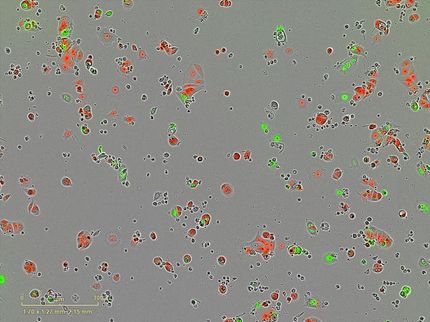Reproductive factors may protect women from Parkinson's disease
Advertisement
A large new study provides evidence that longer exposure to the body's own hormones may protect women from Parkinson's disease. The study will be presented at the American Academy of Neurology's 61st Annual Meeting in Seattle, April 25 to May 2, 2009.
The study found that women who have more years of fertile lifespan (number of years from first menstruation to menopause) had a lower risk of developing the disease than women with fewer years of fertile lifespan. The fertile lifespan is a marker for the body's own sex hormone levels. In addition, women with four or more pregnancies were at greater risk of developing the disease than women with fewer pregnancies. Separately, the risk of Parkinson's disease was increased in women who had hysterectomies and had also previously taken hormone replacement therapy compared to those who never took hormone therapy, but it was not increased in women who took the hormones but had not had hysterectomies.
"These findings suggest that longer duration of exposure to the body's own (endogenous) hormones may help protect the brain cells that are affected by Parkinson's disease. Further investigation is necessary to explain why women with four or more pregnancies are at increased risk compared with those with fewer pregnancies. This study does not support a role for treatment with hormone therapy in Parkinson's, but there are still many unanswered questions," said study author Rachel Saunders-Pullman, MD, MPH, MS, of Albert Einstein College of Medicine in Bronx, NY, and Beth Israel Medical Center in New York, NY, and a member of the American Academy of Neurology.
For the study, researchers analyzed the records of the Women's Health Initiative Observational Study to determine who developed Parkinson's disease. The study involved about 74,000 women who underwent natural menopause and about 7,800 women who underwent surgical menopause.
Among women with natural menopause, those who had a fertile lifespan of more than 39 years, which is a time associated with higher levels of the body's own sex hormones, had about a 25-percent lower risk of developing the disease than women with a fertile lifespan shorter than 33 years. Researchers also looked at the number of pregnancies, and women who had four or more pregnancies were about 20 percent more likely to develop Parkinson's disease than women who had three or fewer pregnancies.
Women who had menopause from surgery had almost twice the risk of developing the disease if they had previously taken hormone therapy and stopped than if they had never taken hormone therapy. Taking hormones did not have any effect on Parkinson's risk for women who had natural menopause.
Because Parkinson's disease is more common in men than in women, researchers have long hypothesized about the role of hormones in the disease.
























































